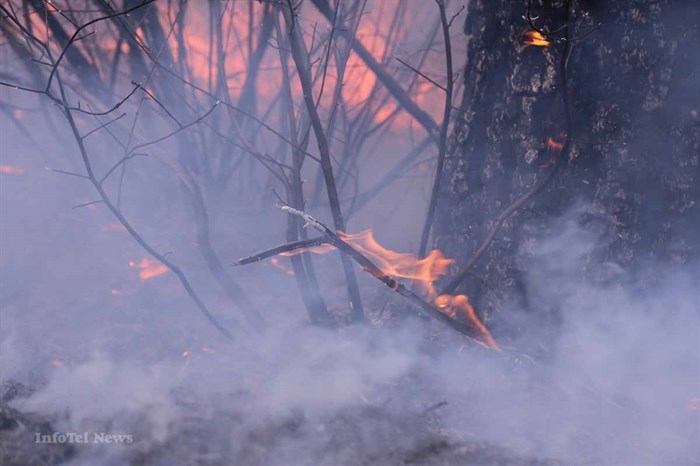
(JENNIFER STAHN / iNFOnews.ca)
August 31, 2018 - 4:30 PM
British Columbia is in the midst of a provincial state of emergency due to a significant number wildfires roaring across the province.
The initial declaration of emergency for B.C. was announced on Aug. 15 and was recently extended for another 14 days and is expected to end on Sept. 12.
But what does a provincial state of emergency mean to you and why should you care?
When a state of emergency is issued, that gives the provincial government special powers to grant to certain authorities such as police services or firefighting personnel.
This might include granting them the right to enter any building or land without a warrant if it’s considered necessary to prevent, respond, or alleviate the effects of a disaster.
Some examples of this include the removal of trees, structures, crops from private property according to the Emergency Program Act.
Meghan McDermott, staff counsel with the B.C. Civil Liberties Association says people shouldn't turn a blind eye when a provincial state of emergency is in effect.
"When emergency powers are invoked, there are always concerns about civil liberties as these are when the norms cease to apply," she says.
Although McDermott says they haven't been made aware of any abuse of powers under the emergency act, it doesn't mean they don't exist.
"We haven't heard any complaints related to these powers (so) we've never considered whether they are proportionate to the emergency threats that they are geared towards," she says.
In 2013 when Alberta was under a state of emergency due to heavy rainfalls causing severe flooding, the RCMP in High River, Alta. came under fire after police officers removed guns from private residences affected by the floods. The gun seizures caused controversy on whether or not it violated the rights of homeowners.
Situations like these haven't been brought to the attention of the B.C. Civil Liberties Association, McDermott says, but it doesn't mean they don't happen.
"The powers seem to be reasonable but it's hard to think about whether they are proportionate in the abstract, without specific facts," she says. "We don't have any specific evidence before us to make us think that they are abused, but again that isn't to say that they are not or haven't been."
Another area to pay attention to is accountability, says McDermott.
"The Emergency Program Act doesn't seem to provide any specific mechanisms for one to complain about the actions taken by officials under these emergency laws," she says. "I suppose one would have to complain through the normal police complaint mechanisms but this, in theory, could be problematic."
As of yesterday, Aug. 29, there are currently 534 wildfires burning across B.C. with 34 evacuation orders affecting more than 3,000 people and 53 evacuation alerts affecting nearly 22,000 people, according to a press release issued by Emergency Management B.C.
To contact a reporter for this story, email Karen Edwards or call (250) 819-3723 or email the editor. You can also submit photos, videos or news tips to the newsroom and be entered to win a monthly prize draw.
We welcome your comments and opinions on our stories but play nice. We won't censor or delete comments unless they contain off-topic statements or links, unnecessary vulgarity, false facts, spam or obviously fake profiles. If you have any concerns about what you see in comments, email the editor in the link above.
News from © iNFOnews, 2018